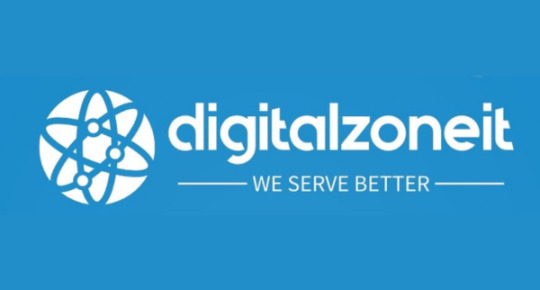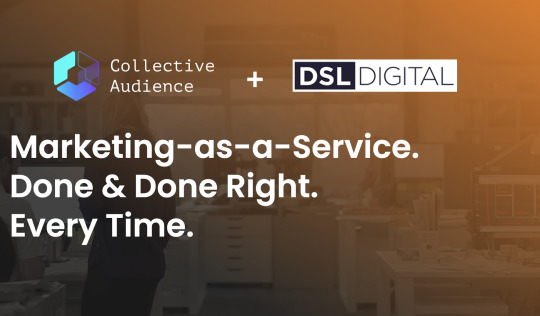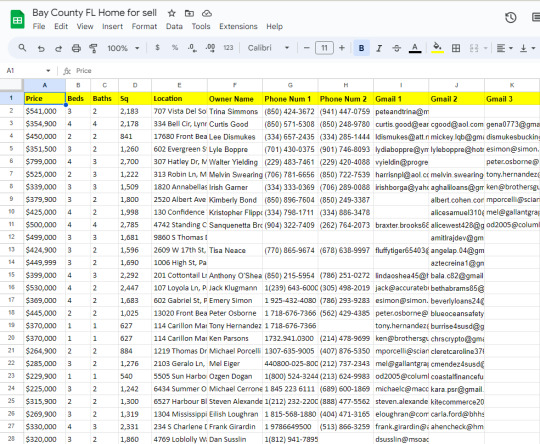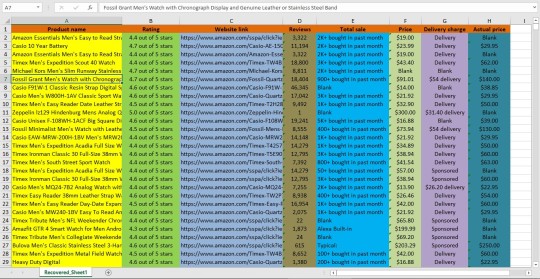#B2B Data Collection
Explore tagged Tumblr posts
Text
1 note
·
View note
Text
#Ethical Data Collection#B2B Marketers#B2B marketing strategies#b2bindemand#emailmarketing#b2bmarketing#b2b marketing
2 notes
·
View notes
Text
B2B Market Segmentation Strategies for Growth and Success
Introduction: Are You Speaking to the Right Business Audience?
Picture this: You’re at a bustling trade show, surrounded by potential clients. Your product is exceptional, but are you showcasing it to the right audience?
At Philomath Research, we’ve observed that even the most innovative solutions can fall short if they aren’t targeted effectively. In the B2B space, market segmentation isn’t just a strategic choice—it’s a necessity. It empowers organizations to align their marketing and sales efforts with the right business audiences, ensuring greater impact and measurable growth.
What is B2B Market Segmentation?
B2B market segmentation is the process of dividing a broad market into smaller segments of businesses that share common characteristics. At Philomath Research, we use this approach to help our clients identify their most valuable market segments, enabling smarter targeting and tailored messaging.
Key Segmentation Criteria We Focus On:
Firmographics – Industry type, company size, annual revenue.
Geographic – Regional needs, climate impact, regulatory considerations.
Behavioral – Purchasing habits, product usage patterns, brand engagement.
Psychographic – Company culture, leadership style, values, and vision.
Needs-Based – Specific operational challenges and solution-driven priorities.
Why B2B Market Segmentation Matters – Insights from Philomath
With years of experience in primary research, Philomath Research understands that well-executed segmentation creates real value. Here’s how:
Enhanced Targeting: Customizing messages for defined segments increases engagement and lead quality.
Better Resource Allocation: Marketing and sales budgets are spent more efficiently by focusing on high-potential clients.
Informed Product Development: Feedback from segmented insights drives better product-market fit.
Competitive Positioning: Understanding niche segments provides an edge over broader, less focused competitors.
Emerging B2B Segmentation Trends – What We’re Watching at Philomath
Personalization at Scale
B2B companies that personalize their messaging see measurable gains in revenue. We help clients develop frameworks that enable tailored experiences at scale—based on accurate segmentation insights.
Account-Based Marketing (ABM)
ABM is gaining traction for its precision. By identifying and targeting high-value accounts, businesses can strengthen client relationships. We integrate segmentation into ABM strategy planning to maximize relevance and ROI.
Privacy and Compliance in Data Use
With rising concerns about data privacy, our research methodology ensures compliance with global standards while gathering valuable segmentation data. Transparency and trust remain at the core of our data strategy.
Sustainability and Ethical Alignment
Ethical business practices now play a critical role in B2B purchasing decisions. We help clients incorporate values-based segmentation to align with sustainability-minded partners and stakeholders.
How Philomath Research Executes B2B Segmentation Strategies
We don’t just talk about segmentation—we make it actionable. Our methodology includes:
Comprehensive Data Collection We gather firmographic, behavioral, and attitudinal data through qualitative and quantitative methods tailored to your industry.
Intelligent Segment Identification Using advanced analytics, we identify actionable market segments that align with your business objectives.
Strategy Development We create customized marketing and outreach plans that reflect each segment’s unique priorities.
Ongoing Measurement and Optimization Segmentation is not static. We continuously evaluate results, refine strategies, and update segments as the market evolves.
Conclusion: Partner with Philomath for Smarter Segmentation
At Philomath Research, we believe that effective B2B segmentation is more than just a research tactic—it’s a strategic foundation for growth. Whether you’re looking to enter new markets, launch a product, or improve your sales efficiency, our expertise in segmentation can help you move forward with confidence.
Let us help you identify, understand, and win over your most valuable B2B segments. Reach out to Philomath Research to start building your data-driven strategy for targeted success.
FAQs
Q1. What is B2B market segmentation? A: B2B market segmentation is the process of dividing a business-to-business market into smaller groups of companies with shared characteristics. These segments help businesses tailor marketing, sales, and product development strategies to meet the specific needs of each group more effectively.
Q2. Why is B2B market segmentation important? A: It helps companies enhance targeting, optimize resources, develop better products, and gain a competitive edge. By understanding niche markets and client needs, businesses can improve engagement, increase conversions, and drive growth.
Q3. What are the main criteria used for B2B market segmentation? A: The key segmentation criteria include:
Firmographics (industry, company size, revenue)
Geographic (location-based preferences or regulations)
Behavioral (purchasing habits, brand loyalty)
Psychographic (values, company culture, decision-making style)
Needs-Based (specific business problems your product solves)
Q4. Can you share real-world examples of successful B2B segmentation? A: Yes, companies like:
Salesforce uses firmographic segmentation to offer industry-specific solutions.
IBM applies behavioral and psychographic segmentation to tailor campaigns.
HubSpot segments based on customer lifecycle stages, boosting lead conversions by 30%.
Q5. What are some emerging trends in B2B market segmentation? A: Notable trends include:
Personalization at scale
Account-Based Marketing (ABM)
Video marketing
Focus on data privacy and security
Sustainability and ethical business practices
Q6. How can businesses implement an effective B2B segmentation strategy? A: Follow these steps:
Collect and analyze relevant data.
Identify distinct segments based on that data.
Develop tailored marketing for each segment.
Continuously evaluate and refine segmentation efforts.
Q7. What is Account-Based Marketing (ABM) and how does it relate to segmentation? A: ABM is a strategy that focuses marketing and sales resources on specific high-value accounts. It aligns perfectly with segmentation by allowing ultra-targeted outreach based on account-specific insights and goals.
Q8. How does personalization impact B2B segmentation success? A: Personalization enhances engagement by delivering relevant content and solutions to specific segments. Companies that personalize marketing efforts see up to 20% higher revenue and stronger customer loyalty.
Q9. How does video marketing support B2B segmentation? A: Video marketing enables businesses to present tailored content for each segment, simplify complex offerings, and improve audience retention—resulting in higher ROI and stronger relationships.
Q10. Why should B2B companies care about sustainability and ethics in segmentation? A: Today’s B2B buyers increasingly consider a company’s sustainability and ethical practices before making purchasing decisions. Including these factors in segmentation can attract clients who align with those values.
0 notes
Text
An Affordable and Quick Solution for B2B Businesses
An Affordable and Quick Solution for B2B Businesses
Target your high-potential prospect: First, you will need to target your prospect who might be your customer. You can research your market to target a high-potential prospect. Based on your target market you can target your right prospect. This is a very important process because a prospect can convert into a customer. If you target high-potential prospects you can convert them easily with an easy process. That can help you increase your sales quickly. You can hire a top-rated agency to market research and target high-potential prospects for you.
Gather Contact Information of your high-potential prospects: After targeting your high-potential prospects, you will need to gather their contact information, such as Phone numbers, Email addresses, etc. Using this information, you can reach out to them with your Services or Products and offer them. You can get many individuals or agencies on your side who build contact lists, email lists, and prospect lists based on your target audience. You can hire them to build a prospect contact list based on your targeted audience.

#List Building#Data Entry#Data Scraping#Lead Generation#Contact List#Data Mining#Data Extraction#Data Collection#Prospect List#Accuracy Verification#LinkedIn Sales Navigator#Sales Lead Lists#Virtual Assistance#Error Detection#Market Research#B2B business growth solution.#b2blead#salesleads#emaillist#contactlist#prospectlist#salesboost#businessgrowth#b2b
1 note
·
View note
Text

#dataentryservices#b2b lead generation expert; b2b; data collection; lead generation; web research; professional b2b leads; website research; data entry; lead#data entry#fiverr#leadgeneration leadsgeneration fiverrseller b2b b2c realstate targetedcustomerleads linkedinleads bestleadsgenerator topseller
0 notes
Text
5 Best B2B Customer Support Tools (May 2024)
New Post has been published on https://thedigitalinsider.com/5-best-b2b-customer-support-tools-may-2024/
5 Best B2B Customer Support Tools (May 2024)
In today’s fast-paced business landscape, providing exceptional customer support is crucial for B2B companies looking to build long-lasting relationships with their clients. To meet the evolving needs of customers and streamline support operations, businesses are turning to advanced tools and platforms that offer a range of features designed to enhance the customer experience. We’ll explore the top B2B customer support tools that are changing the way businesses interact with their customers.
Supportbench is a comprehensive customer support software platform designed specifically for B2B teams. With its all-in-one approach, Supportbench empowers businesses to deliver personalized customer experiences by providing total visibility into customer interactions, activities, and future behavior.
One of the standout features of Supportbench is its ability to help B2B teams scale their support efforts. The platform’s unified workflows and customizable experience allow businesses to respond faster to customer inquiries and tailor their support to meet the unique needs of each client. By leveraging data-driven insights and predictive capabilities, Supportbench enables teams to proactively address customer concerns and deliver seamless support across various channels.
Moreover, Supportbench offers comprehensive reporting and analytics, giving businesses the tools they need to measure the performance of their customer support efforts and make data-driven decisions. With its ability to integrate with various other B2B tools, such as CRM and sales software, Supportbench streamlines operations and ensures a cohesive workflow experience for support teams.
Key features of Supportbench include:
Total visibility into customer interactions, activities, and future behavior
Scalable support infrastructure and API integrations
Unified workflows for better collaboration and efficiency
Customizable experience based on data-driven insights and predictive capabilities
Comprehensive reporting and analytics
Zendesk is a well-established customer service platform that caters to the complex needs of B2B companies. With its omnichannel support capabilities, Zendesk allows teams to manage customer interactions across multiple channels, including email, live chat, social media, and phone, all within a unified platform.
One of the key advantages of Zendesk is its integrated customer relationship management (CRM) tool. This feature provides B2B teams with a 360-degree view of their customers, enabling them to deliver more personalized support experiences. Additionally, Zendesk offers robust reporting and analytics, empowering businesses to measure the performance of their customer support efforts and make data-driven decisions.
Zendesk’s highly customizable nature and automation features make it an ideal choice for B2B companies looking to streamline their workflows and improve efficiency. The platform seamlessly integrates with a wide range of other B2B tools, ensuring a cohesive and efficient customer support experience. With its scalability, Zendesk can grow alongside a business, making it suitable for companies of all sizes.
Key features of Zendesk include:
Omnichannel support across email, live chat, social media, and phone
Integrated CRM for a 360-degree view of customers
Robust reporting and analytics capabilities
Customization and automation features
Scalability to accommodate growing customer bases and support teams
Seamless integration with various B2B tools
RingCentral is a cloud-based communication platform that offers a suite of business solutions, making it a valuable B2B customer support tool. With its cloud phone system, RingCentral enables businesses to replace traditional landlines with a more flexible and scalable communication solution.
One of the standout features of RingCentral is its omnichannel contact center, RingCX. This solution allows customers to connect with businesses across voice and multiple digital touchpoints, providing a seamless experience. RingCX offers features such as workforce engagement management, outbound sales, collections, and proactive support, empowering B2B teams to deliver exceptional customer service.
RingCentral emphasizes digital engagement capabilities, enabling businesses to connect with customers across various digital channels, including the web, social media, messaging apps, and review platforms. The platform’s integration and customization options make it a versatile choice for B2B companies. With the ability to integrate with a wide array of applications and access RingCentral’s developer platform and APIs, businesses can create custom workflows tailored to their specific needs.
Key features of RingCentral include:
Cloud-based communication system
Omnichannel contact center (RingCX)
Digital engagement capabilities across various touchpoints
Integration with a wide array of applications
Customization options through developer platform and APIs
Scalability to accommodate growing business needs
Aceyus is a contact center intelligence software that consolidates customer data from various platforms into a single view, providing B2B companies with total visibility into their customer support operations. With its advanced data mining and warehousing capabilities, Aceyus enables businesses to collect, organize, and analyze customer data from multiple sources, uncovering valuable insights.
One of the key features of Aceyus is its omnichannel reporting and analytics. The platform provides comprehensive reporting across all customer communication channels, including voice, email, chat, and social media, allowing B2B teams to gain a holistic view of their support performance. Additionally, Aceyus helps businesses visualize and understand the complete customer journey, enabling them to identify pain points and optimize the support experience.
Aceyus delivers real-time insights and visibility into contact center performance, empowering B2B companies to make data-driven decisions and respond quickly to customer needs. The platform’s scalability ensures that businesses can keep pace with increasing demand, while its customization options allow for seamless integration with various CRM, workforce management, and other business systems.
Key features of Aceyus include:
Data mining and warehousing capabilities
Omnichannel reporting and analytics
Customer journey mapping
Real-time insights and visibility into contact center performance
Scalability to accommodate growing business needs
Customization options for integration with various business systems
Aircall is a cloud-based communication platform that offers a suite of features tailored for B2B customer support teams. With its omnichannel support capabilities, Aircall allows teams to manage customer interactions across multiple channels, including voice, email, chat, and social media, all within a unified platform.
One of the advantages of Aircall is its scalable infrastructure. As a cloud-based solution, Aircall enables businesses to easily scale their customer support operations as their needs grow, without the need for additional hardware. The platform also seamlessly integrates with a wide range of B2B tools, such as CRM, helpdesk, and ecommerce platforms, allowing businesses to streamline their workflows and provide a more cohesive customer experience.
Aircall offers a range of advanced call center features, including IVR menus, skill-based routing, live call monitoring, and power dialing, helping B2B teams optimize their customer support operations. The platform’s AI transcription capabilities transcribe calls and voicemails, facilitating better ramp-up of representatives and delivery of world-class customer experiences. With its customization options and collaboration features, Aircall enhances team efficiency and customer service quality.
Key features of Aircall include:
Omnichannel support across voice, email, chat, and social media
Scalable cloud-based infrastructure
Seamless integration with various B2B tools
Advanced call center features (IVR menus, skill-based routing, live call monitoring, power dialing)
AI transcription for calls and voicemails
Customization options and collaboration features
Productivity tools to boost team performance
Streamlining B2B Customer Support Operations
These B2B customer support tools offer a range of features and capabilities designed to help businesses deliver exceptional customer experiences. By leveraging these platforms, B2B companies can streamline their support operations, gain valuable insights, and build long-lasting relationships with their clients. As the business landscape continues to evolve, investing in the right customer support tools will be crucial for staying ahead of the competition and driving success in the digital age.
#2024#ai#Analytics#API#APIs#applications#approach#apps#automation#B2B#bases#Behavior#Best Of#Business#call center#Cloud#Collaboration#Collections#communication#Companies#competition#comprehensive#crm#customer data#customer experience#customer relationship management#customer service#data#Data Mining#data-driven
0 notes
Photo

(via Collective Audience to Acquire Marketing-as-a-Service Provider, DSL Digital, Enabling Launch of AI-Powered AudienceServices™)
Acquisition to Add Global B2B and DTC Customer Base, International Services Team, and Proprietary AI-Powered AdTech Tool Sets
Collective Audience, Inc. (Nasdaq: CAUD), a leading innovator of audience-based performance advertising and media, has entered into a definitive agreement to acquire DSL Digital, a provider of Marketing-as-a-Service solutions powered by proprietary AI technology. For Collective Audience, the acquisition is expected to form the foundation of a new AudienceServices™ group.
#ai#artificial intelligence#programmatic advertising#digital advertising#adtech#digital media#digital agency#data#b2bmarketing#b2b lead generation#dtc#sap#collective audience
0 notes
Text

Hello,
Are you looking for the best and accurate skip tracer for your real estate business? I'm an expert in all types of real estate leads with skip tracing, I'm one of the best and accurate skip tracers for the real estate business.
#data analytics#b2b lead generation#b2b leads#lead collect#lead#skipper#skip tracing#data collection#real estate
0 notes
Text
How to Build a Strong B2B Market Research Plan
Learn how to create a robust B2B market research plan from scratch. Explore strategies, tools, and best practices to drive informed decisions and business growth.
#B2B market research#Market research plan#Business intelligence#Data-driven decision-making#Competitive analysis#Target audience profiling#Industry trends#Market segmentation#Customer needs analysis#SWOT analysis#Market survey#Market assessment#Data collection methods#Market research tools#Market analysis framework#Research strategy#Market research budget#Information sources#Market insights#Market research best practices
0 notes
Text
The Beauty Of B2B lead generation
#b2b#b2b lead generation#b2bmarketing#b2bsales#business growth#ecommerce#brand#b2b services#ecommercebusiness#founder#increase#2xsales#datascrapingservices#data mining#data collection services#data collection company#lead generator#leadgeneration#marketing#manager
0 notes
Text
Grow your business by b2b lead generation
I am an expert B2B lead generation and web researcher. I will provide B2B lead generation for any industry.
Check my service on Fiverr: https://www.fiverr.com/s/6oxg2X

#leadgeneration#business#grow business#grow better#generate leads#usa seo leads#business lead#b2b#email collection#b2b lead generation#business growth#b2bmarketing#b2b services#usa#email#major#entrepreneur#data#fiverr
1 note
·
View note
Text
Boosting B2B Research: Synthetic Sampling for Better Data
Discover how synthetic sampling enhances B2B research accuracy by improving data quality, and ensuring more insights for decision-making. For more detail visit here : https://www.philomathresearch.com/blog/2025/03/19/enhancing-b2b-research-accuracy-how-synthetic-sampling-elevates-data-quality/
0 notes
Text

I will provided data entry service. Product listing from Amazon.
#Data entry#Data mining#Virtual assistant#Web scraping#B2b lead generation#Business leads#Targeted leads#Data scraping#Data extraction#Excel data entry#Copy paste#Linkedin leads#Web research#Data collection
0 notes
Text
#Digital marketing projects#Data collecting#B2B lead generation#Biography writing#Convert to another file#Translation#Google Spreadsheet#Word document
1 note
·
View note
Text
How Automation Is Changing Sales Contract Management - Technology Org
New Post has been published on https://thedigitalinsider.com/how-automation-is-changing-sales-contract-management-technology-org/
How Automation Is Changing Sales Contract Management - Technology Org
Contract management has long been a tedious task for sales teams in large organizations. Creating contracts is tough enough, with salespeople having to incorporate buyer needs and balancing them with their company’s aims. Using automated workflows, the contract lifecycle can become dramatically less burdensome, leading to faster deal flows.
Signing a contract – illustrative photo. Image credit: Scott Graham via Unsplash, free license
When it comes to B2B contracts, it’s the negotiation phase that creates the most hurdles, as both parties go back and forth on terms and limitations. If finding consensus on business terms doesn’t cause friction, legal red tape almost certainly will.
Most companies struggle to keep pace with these changes and need to constantly check whether revisions violate any legal restrictions. By the time legal teams are done verifying the latest iteration of the contract, customers have waited forever to start onboarding, and the relationship starts on a less-than-ideal note.
Technology is now rescuing sales teams and their customers from these time-consuming tasks.
Here’s how automation is simplifying contract management in companies of all sizes.
Ensuring Compliance
Compliance, or ensuring it, is one of the most tedious and time-consuming tasks in the contract management lifecycle. While AI has certainly improved in terms of these capabilities, human-led legal departments generally still have to comb contracts for potential violations, much to the frustration of sales reps and customers, both of whom want the deal closed quickly.
Legal teams currently offer templates for salespeople to use, and this cuts down the compliance review time. However, the real bottleneck often occurs after the vendor and the customer have completed negotiations and have modified the contract.
Automation, thanks to AI-assisted scanning and triggered task routing, is helping legal teams flag potential violations quickly and assist sales teams during negotiation. For instance, legal teams can view changes to the contract in real time, and flag any problematic changes immediately.
This saves sales from having to go back to the customer and reopen items that were previously closed. Automation also speeds up contract approvals by assigning approvals to the right people, backed by regular reminders.
Automation thus saves salespeople from having to follow up internally to get contracts approved. Companies can route complex contracts to specific people for review and approval, creating custom workflows efficiently.
The result is a shorter compliance review timeline, and customers onboard quickly while their enthusiasm to get started lasts.
Transparency
Contract management involves several stakeholders. Typically, people focus on the negotiation portion of the workflow, but contract management has stakeholders even after all parties sign a deal. For instance, accounts receivable and billing departments routinely refer to sales contracts to figure out pricing and credit terms.
Incorrect pricing and discounting are two of the most common reasons for customer disputes. A centralized contract management platform gives every stakeholder easy access to important data, no matter the lifecycle stage.
Automated tasks simplify billing departments’ jobs by pulling pricing and credit data from contracts directly into invoices. This sort of automation reduces invoice generation times, leading to quicker collections, thanks to the combination of quick invoicing and fewer errors.
Credit management also receives a boost thanks to these features. Finance departments can review contracts for the terms sales has offered, verifying whether the company can support them or not. In case of issues, sales can amend terms accordingly, preventing a situation where the customer signs one set of terms only to be told the company has to amend them.
Visibility of this kind reduces dispute resolution times, leading to quicker cash flow capture. Throughout these workflows, automation plays a role, from pulling important information into different databases, and routing approval workflows based on preset triggers.
Faster Negotiation
Sales teams have to walk a fine line during negotiations. They must balance their company’s needs with that of their customers. As if walking this line isn’t tricky enough, sales must also track contract changes and analyze whether they’re suitable for their company.
Contract management technology centralizes all negotiations and other contract-related data, making it easy for teams to track changes and validate them. These platforms automatically notify stakeholders of changes and let salespeople route change approvals to necessary departments.
The biggest advantage of these features is the elimination of email and phone calls for negotiations. No party can claim misunderstandings that could sour the relationship, putting everyone on an equal footing. These features also save time, allowing sales teams to focus on building pipeline and ensuring customer satisfaction.
As a deal progresses, automation also handles one of the most tedious tasks sales has to handle: updating the CRM. Contract management software integrates into the CRM to update deal negotiation stages and that data feeds into a company’s broader dashboards, giving everyone in the organization a good view of progress.
All these features make it easy for sales to maintain momentum during the negotiation and communicate effectively with their organization. The result is a smaller sales cycle and faster growth.
Automation Is The Key To Smooth Contract Management
Automation is a critical driver of modern contract management platforms, giving salespeople more time to execute value-added tasks while maintaining contract momentum. Thanks to integrations and automated jobs, contract management software is now a critical cog in every company’s sales arsenal.
#Accounts#ai#automation#B2B#Building#Business#Capture#change#Collections#Companies#compliance#contract management#crm#data#databases#deal#easy#email#Features#finance#Fintech news#friction#Giving#growth#how#human#integrations#invoice#invoices#invoicing
0 notes
Text
Discover how online sampling impacts data quality. Learn 5 key ways it can influence accuracy, representativeness, and reliability in research.
To know more: data collection services in the UAE
b2b market research services
2 notes
·
View notes